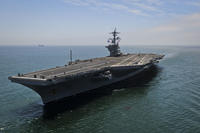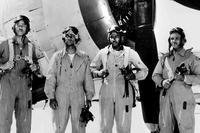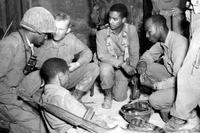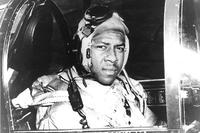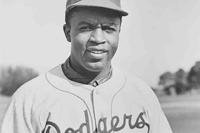The 1989 film "Glory" told the world the story of Robert Gould Shaw leading the 54th Massachusetts Infantry Regiment, an all Black infantry unit in the Civil War. A longtime abolitionist, he led a short but storied career until he died in combat in July 1863.
Shaw famously led the regiment in an ill-fated frontal assault on Fort Wagner, South Carolina, which protected the approaches to Confederate-held Charleston Harbor. Shaw was shot several times and died approaching the fort's parapets.
Confederate officers, discovering the body of the White commander of an all-Black unit, refused to return it to the Union Army, as was the custom at the time. Instead, Shaw's body was stripped and tossed into a mass grave with 70 Black soldiers who fell at Fort Wagner. Burying Shaw with the men of the 54th was intended to be an insult to him and his loved ones, but the family instead asked that his remains stay with those of his men.
But not only were his clothes stripped, so were his personal effects, including his sword.
The weapon he carried that day wasn't a standard-issue officer's sword, however. It had been specially made for Shaw by the famed English swordsmith, the Henry Wilkinson Company.
The Wilkinson company was known worldwide, as it began its life under founder Henry Nock as the personal gunmaker to King George III. Nock's son-in-law, James Wilkinson, took over the business after Nock's death and began making personal weapons for British nobility. The firm then reached great heights under James Wilkinson's son, Henry, as it began to manufacture swords that were specifically created for combat effectiveness.
By the time of the U.S. Civil War, Henry was dead, but the Wilkinson sword was famous the world over and highly coveted by military officers. Shaw's sword was one of those, and among the finest in the world.
"That was the Rolls-Royce of swords at the time," Anne Bentley, a curator at the Massachusetts Historical Society in Boston, told National Public Radio. "And it was a very, very expensive and very valuable gift, and anyone who depended on a sword in war wanted a Wilkinson sword, so it was a generous gift from his uncle."

So when the sword disappeared from the battlefield at Fort Wagner, it was a devastating loss for the family. Historians speculate that a Confederate soldier took it and sold it to an officer.
In 1865, Union Gen. Charles Jackson Paine, whose forces were occupying Goldsboro, North Carolina, learned that the sword was in a house nearby. Having a contingent of Black soldiers in his camp, he asked whether any of them had been in the 54th Massachusetts.
When he learned that they had, Paine sent them to retrieve the sword. It was sent to Boston and given to Shaw's sister Susanna, who gave it to her great-grandson. When he died, his daughter, Mary Wood Minturn, found it while cleaning out her parents' attic.
The descendents of the Shaw family found it -- engraved with an American flag, along with the initials "RGS" -- among other swords in the attic. The family decided to donate it to the Massachusetts Historical Society.
"For me, it's more the symbol that the sword is, rather than the object itself," Bentley told NPR. "Because it represents not just Robert Gould Shaw, but it represents the aspirations, the dreams, the hopes and the sacrifices of all the men in the regiment."
Though the Union Army and the 54th Massachusetts didn't capture Fort Wagner, the bravery of the men of the unit during the fighting became the stuff of legend. The image of Union Sgt. William Harvey Carney picking up the American flag as the unit flagbearer fell dead was immortalized in paintings and songs; he was awarded the Medal of Honor for it.

President Abraham Lincoln credited the men of the 54th and other Black soldiers with turning the tide of the war in favor of the Union and preserving the United States.
-- Blake Stilwell can be reached at blake.stilwell@military.com. He can also be found on Twitter @blakestilwell or on Facebook.
Want to Learn More About Military Life?
Whether you're thinking of joining the military, looking for post-military careers or keeping up with military life and benefits, Military.com has you covered. Subscribe to Military.com to have military news, updates and resources delivered directly to your inbox.











